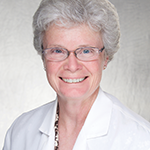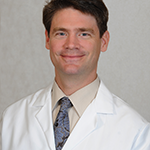
Piyaset / shutterstock.com
Retirement is not always the closing chapter of a long career. For some rheumatologists, it’s the start of new, fulfilling storylines.
“I never thought I wouldn’t practice medicine until I was physically unable to do it anymore,” says Harry Gewanter, MD, who retired from his Richmond, Va., pediatric rheumatology practice two years ago. Dr. Gewanter now sleeps more, spends undistracted time with his family and reads books. He also serves as chair of RheumPAC, the ACR’s nonpartisan political action committee, is immediate past chair of the nonprofit Alliance for Safe Biologic Medicines (ASBM) and is cofounder and medical director of Medical Home Plus, another nonprofit advocacy group focused on families of children with disabilities. “My rationalization about retiring is that I would stop doing individual pediatric rheumatology and start doing societal pediatric rheumatology,” he says.
Dr. Gewanter is one of a group of ACR Masters—a high honor bestowed on rheumatologists 65 or older who have made outstanding contributions to the organization and their field—who embrace post-career roles as advocates, mentors and volunteers or take on long-delayed passion projects. After decades of hard work and immense responsibility in clinical practice, clinical research or academia, retirement allows them to shift gears.
Retirement will likely take a toll on the number of clinicians available to treat a rising patient population, according to the ACR/ARHP’s 2015 Workforce Study.1 By 2030, 60% of adult rheumatologists and 42% of pediatric rheumatologists practicing now may retire, according to the study’s prediction.
When and how to retire is a personal decision for each rheumatologist, says Graciela S. Alarcón, MD, MPH, Jane Knight Lowe Chair of Medicine in Rheumatology, Emeritus, at the University of Alabama at Birmingham (UAB) School of Medicine, who retired nearly 10 years ago.
“Maybe it’s just the right time, or some people may have a disability,” she says from her home in Lima, Peru. “I retired from my role as active faculty for a number of reasons, including family. I had worked long hours and long days for many years, of course. It was time. I loved what I was doing, but on the other hand, I had other things I wanted to do.” She spends summers in California to help take care of some of her grandchildren while her daughter is at work.
Dr. Alarcón says rheumatologists considering retirement soon should take time to formulate a plan for their new lives, especially if they want to stay involved in their field in some way, as she has done with mentorship and involvement with lupus research groups. “If you don’t have a plan, you can fall into a vacuum. I’ve struck a good balance,” she says.
A Gradual Transition
Mentorship allows retired rheumatologists to reduce their workload but remain involved, says Dr. Alarcón. In retirement, she serves as an adviser to the Grupo Latino Americo De Estudio del Lupus (GLADEL), is involved in the Systemic Lupus International Coordinating Clinics (SLICC) research group and serves as a paid adviser to the Lupus Clinical Trials Consortium, a nonprofit organization that supports clinical research on lupus.
“I’ve continued my professional activities, but at my own pace. I balance my professional time with my personal time, but I have not lost my connection to the rheumatology or lupus research communities that have been a part of my life for so long. Retirement was a little hard at first, but once I adjusted to doing what I wanted to do, it became easier,” she says.
Retirement can be jarring to some people. It may mean a change in identity, or giving up a title, office, travel, overseeing budgets, lectures or busy days in clinic. Some academic medical centers have created programs to help faculty members make a gentle transition.
“A few years ago, we did an analysis and found our faculty just love this place,” says Janice E. Clements, PhD, Vice Dean of Faculty Affairs at Johns Hopkins University in Baltimore, Md. “A large number of faculty were not thinking about retirement because their identity was so closely tied to being at this school.”
Johns Hopkins administrators realized senior faculty needed “a graceful place to land” when they retire, says Dr. Clements. In late 2017, the school launched its new Senior Faculty Transition Program, which includes two pathways to phased retirement, including structured, reduced hours and salary. The Hopkins program also offers resources on retirement, including information on Social Security, Medicare and other aspects of transition.
Retired faculty also needed places on campus to meet with each other, mentor junior faculty or students, and help younger researchers write grants, says Dr. Clements. “We have the physical space, including a beautiful library building that was often unused. So we turned it into a designated place for senior faculty to meet,” she says.
Department chairs in the process of retiring were involved in the program’s development. “They were already involved in mentorship and very happy about it. They are happy their faculty engagement will be formalized,” says Dr. Clements.
Delayed retirement also has a financial impact on university budgets, as senior faculty’s higher salaries do not make room for junior faculty to move up, she says. “Financially, this program supports junior faculty as well, because it frees up resources in departments for recruitment.”
Time for Family & Volunteerism
Retirement affords rheumatologists more time to devote to life outside medicine, including volunteering in the community, spending time with family, travel and hobbies.
Louis W. Heck Jr., MD, retired from his faculty position at UAB eight years ago after 30 years in clinical research and teaching. His roles included serving as the rheumatology department’s fellowship director for 10 years. Although he enjoyed the collaborative, exciting environment at his job, as well as the research breakthroughs the faculty produced, he wanted to focus more of his time on his family and volunteer pursuits.
“There has to be a balance. Since I retired, my wife and I have been able to make trips we have never had time to make before,” says Dr. Heck, who still lives in Birmingham. In retirement, he took a course in master gardening, grows cotton and other plants in his 1,000-square-foot garden, and volunteers with both the Auburn University Extension Services Master Gardening program and Aldridge Botanical Gardens nearby. “I compost oak leaves as well. It’s an annual ritual.”
Early in his career, when his junior faculty member’s salary did not stretch very far to support his family, cooking meals at home was a way to save money. Now, Dr. Heck studies various cuisines, from Thai to Italian, and cooks and bakes for enjoyment.
“I make sourdough baguettes, and I’m getting interested in rye bread. There is a joy in cooking or baking for yourself, your family and friends,” he says. “My wife and I might make chicken soup and a baguette to take to a friend who is sick.”
The Hecks volunteer at a Birmingham homeless women’s shelter, where he also helps connect the residents to local clinics for health care services. Dr. Heck also serves as a consultant for Blue Cross Blue Shield and some continuing medical education programs. “It’s important to stay active and keep your mind active,” he says.
After more than 30 years working as the co-author of major rheumatology textbooks, as well as serving as the clinical director of the National Institute of Arthritis and Musculoskeletal and Skin Diseases (NIAMS) in Washington, D.C., and chief executive officer of the Arthritis Foundation in Atlanta, John H. Klippel, MD, retired in 2013. He and his wife now spend time in Bald Head, N.C., and are building a new home in Asheville, N.C. Dr. Klippel says these laid-back communities offer a slow pace of life suited to retirement, along with easy access to everything he loves: beaches; nature trails for biking, hiking and fishing with his family and three Portuguese water dogs; and vibrant art scenes. In retirement, he launched Marshdog Folk Art and runs an online site where he markets original art birdhouses he designs and builds. He also has received commissions for his artworks.
“Retirement is a totally different experience. I love the freedom to control my life, to do the things I am passionate about, and these may be things that you don’t necessarily relate to a career or income,” says Dr. Klippel. Creating artwork “taps my creativity. He says he receives “a sense of great reward to know I have created something from the fruits of my labor. When you sell it, people tell you they love it, and that’s very fulfilling.” He and his wife also display their works at arts and crafts festivals about four times a year. “Our business model is to make enough to pay for supplies,” he says.
Although some of his peers stay involved in advocacy, volunteer or mentor roles in rheumatology, he chose to step away for the most part, he says. He keeps up with advances in rheumatology by reading, tweets occasionally and drops notes to former colleagues, but that’s about it.
“It is hard to give up both the research aspect of what I was doing in my career as well as patient care, because I went into medicine for both of those things,” says Dr. Klippel, who still receives Christmas cards from former patients. “I had the pleasure of combining my research interests, trying to pursue the answers to questions that were relevant to my patients, with patient care. I never knew the freedom that exists in retirement. When you’re in a hectic, stressful career, even if you enjoy it, you make sacrifices. You don’t really explore who you are as a person.”
‘When you’re practicing medicine, stress & sleep deprivation are such major parts of your life. Retirement has been such an amazing relief.’ —Harry Gewanter, MD
Identity Shifts
Talk over retirement plans, including dreams and anxieties, with family or confidantes, Dr. Heck advises. Financial planning for retirement as early as possible is also wise, he says.
“I would tell any rheumatologist who is thinking about retirement to listen to your heart. Your brain is on overdrive when you’re in clinical medicine or research. You are doing tremendous good, but there is a point when your lifestyle has to change,” he says.
Dr. Gewanter jokes about much more relaxed he feels after decades in clinical practice.
“I didn’t realize my baseline level of stress while I was working in the office. I struggled to adapt to our electronic health record systems, and it just felt like I was always climbing Mt. Everest. To be able to walk away from it was an immense relief. When you’re practicing medicine, stress and sleep deprivation are such major parts of your life. It’s like background noise. Retirement has been such an amazing relief,” he says.
Dr. Gewanter can now help his wife, who works as a surgical nurse, care for their sons, including one who has Down syndrome and one being treated for Hodgkin’s disease. Recently, he was at the hospital with his son, and the mother of one of his former patients recognized him.
“Her children were now grown and in college. She remembered something that I had said 20 or 30 years ago. How cool is that?” says Dr. Gewanter. “That’s what happens when you practice medicine. But you don’t really see it until you retire. You just don’t know the ripples you create. It’s humbling.”
Susan Bernstein is a freelance medical journalist based in Atlanta.
References
- Battafarano D, Ditmyer M, Bolster M, et al. 2015 ACR/ARHP workforce study in the United States: Supply and demand projections of adult rheumatology workforce (2015–2030). Arthritis Care Res. 2018 Feb.

